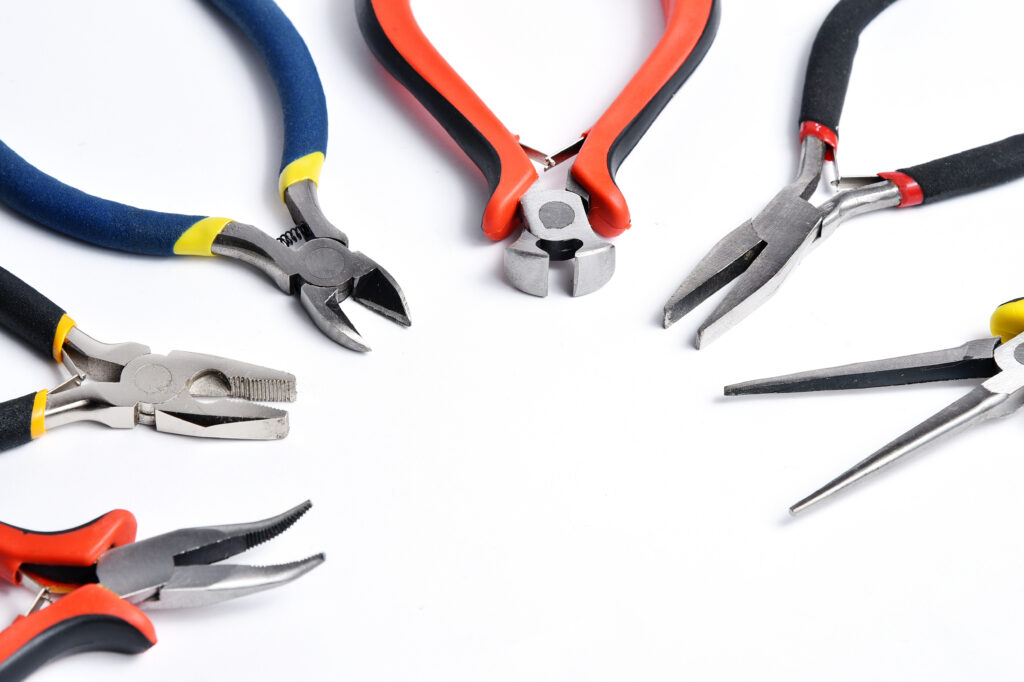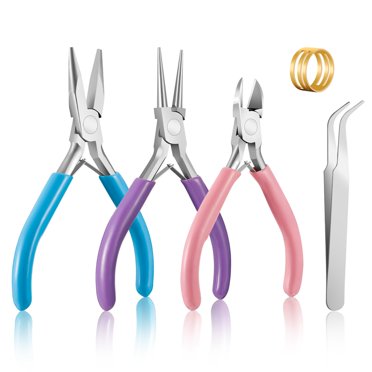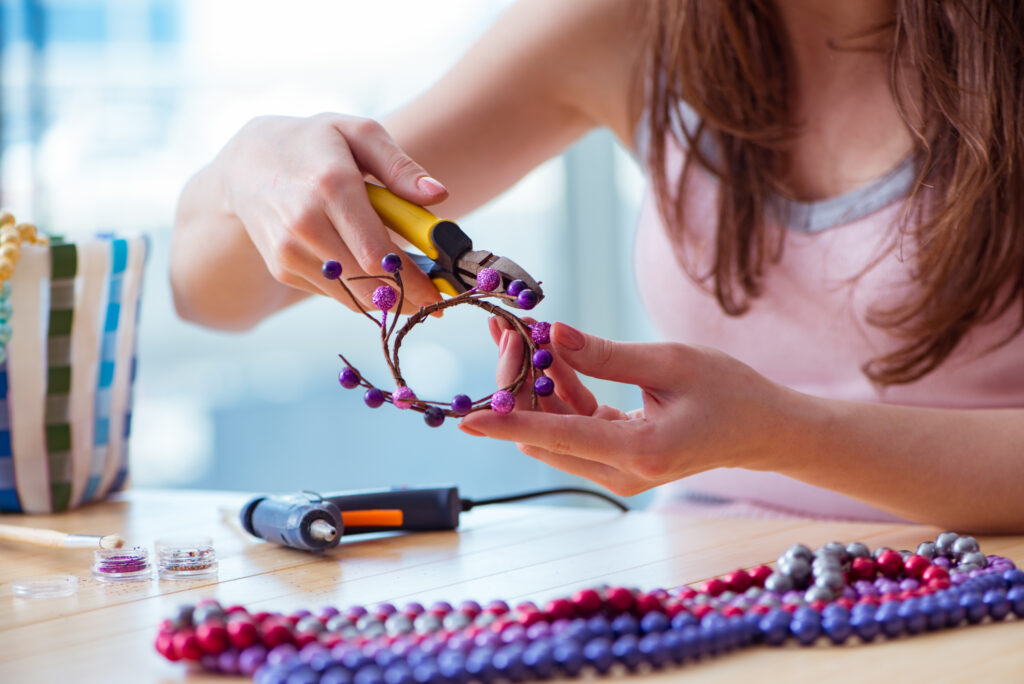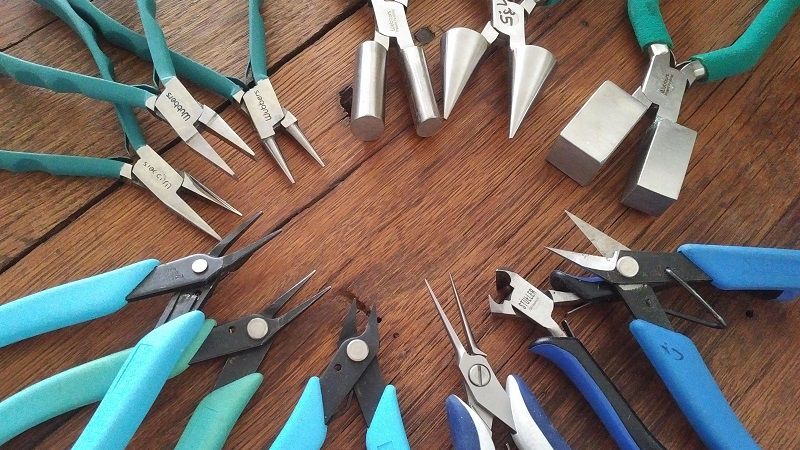6 Best Crafting Pliers For Your Next DIY Project
Doing arts and crafts would always be something that could help to boost your mood. You can do such crafts as your hobby or as your new business venture, allowing you to turn something you love into a profitable business. But before you worry about which designs you should do next, gathering the best type of tools and materials is essential to produce quality output.
Whether you’re making chains or jewelry, you’ll need handy crafting pliers to help make the job easier and quicker. This can also help ensure that you provide the best results for your piece as much as possible. To help you out, listed below are some tips for choosing the best crafting pliers for each type: Set of different tools for crimping cables. Set of pliers and wire cutters.

AdobeStock_211439890.jpeg
- Flat Nose Pliers
Flat nose pliers are used for holding and gripping surfaces or chains which act as your sturdy fingers. This way, you don’t have to deal with the pain of force but rather allow your pliers to handle all the pressure. Flat nose pliers are essential if you’re making smaller pieces that need a sturdy handling service. You can use them to open and close any jump rings.
When shopping for flat nose pliers, ensure that the flat surface has no soft grills or grains on it and allow it to be smooth as much as possible. This will help to prevent causing any dent in your metal pieces and let them be curved and polished for as long as possible.
- Round Nose Pliers
If you’re using pliers to make pieces of jewelry, round nose pliers should always be in your toolbox. With this type of plier, you can easily manipulate your wires to create the perfect curve. You can use this to make your chains, locks, and pendants. With its rounded body, you can easily curve any wire into your desired shape as quickly and seamlessly as possible. Moreover, each plier has an increasing size, allowing you to make small or large circles with them.
When shopping for round nose pliers, ensure that you look for the perfect size that you’d like to work on. Using standard round nose pliers would work just as fine if you’re making jewelry, such as a bracelet, necklace, or earrings. However, for larger pieces, look for a part that has a bigger diameter to ensure that it can accommodate your project’s size.
- Side Cutters
Another essential tool when it comes to crafting jewelry is a side cutter. As you work your way wire, you don’t expect to finish a single piece in your project unless you’re going for a long and unending one. Chances are, you’ll need to cut your wire to complete the task so you can join them with your other parts. A side cutter is a plier that could help you snap a wire easily. Since they’re extremely sharp and sturdy, they can help cut your wire without folding the piece but still allow it to be perfectly round on both edges.

google image
There are plenty of side cutters that you can shop for, especially for your crafting project. Just ensure that you purchase one that can accommodate your wire size and can easily navigate its way through your project, especially if you’re crafting a busy piece. Apart from wires and sheets, side cutters can also help cut other flexible strings, making them an excellent tool for all your jewelry pieces. It’ll be a staple in your jewelry kit toolbox.
- Long Nose Pliers
Similar to flat nose pliers, long nose pliers work similarly to them but hold a longer piece. This would work well if you’re working with much more delicate and small details that a regular flat nose plier cannot accommodate. This way, you can still grab and manipulate your wires without having to cause painful pressure on your fingers. Moreover, they’re also smooth and can help prevent leaving any plier marks on your project.
When shopping for long nose pliers, you must know that they don’t come with a smooth flat surface finish. They might have a rigged surface allowing you to hold a piece better and sturdier. With that, you first need to ensure which type of material you’d be comfortable using this with as it might leave off a dent, especially if you tend to have a strong grip. Moreover, you should also check its cutting abilities at the end of the plier as it can also help to cut off small and soft pieces.

- Bent Nose Pliers
There are some projects that are so delicate that you need to ensure maximum visibility at all times. In most cases, a regular plier is usually long, which might affect your visuality, especially when working with delicate pieces. To allow for maximum visibility but still provide you with the help you need from a tool, bent nose pliers would surely be helpful. They’re also great for gripping hard-to-reach places that a regular flat-nose plier cannot accomplish. Similar to other types of pliers, they can also work easily to open and close any jump rings.
A bent nose plier has two sizes: long and short. Long-bent nose pliers will suffice if you’re working on a regular project. However, a shorter bent nose plier would be your best choice for your extra delicate projects that might require you to use your magnifying glass.
- Nylon Jaw Pliers
Some crafters fear that if they use pliers to hold their craft, they might leave a dent which can be difficult to remove or hide. To prevent that from happening, you should use nylon jaw pliers. They have a soft edge and surface that helps avoid dents or marks on your wires and metal sheets every time you use them. However, don’t expect a tighter grip as they have a softer surface your wire will lay on to.
When shopping for nylon jaw pliers, you should check first their grip and how well they can hold a wire. Just because it’s nylon, it doesn’t mean that it has a free pass to let any material slide off easily. Moreover, you should also check if it can still leave dents, as some might still give off an impression on the edges of the nylon.

google image
Takeaway
Choosing the best crafting pliers depends on what kind of project you’re going to create. It depends on the delicacy of the design and materials you wish to do. But with the right research and tools, you should allow yourself to have the best piece without worrying about any plier dents on your wires.